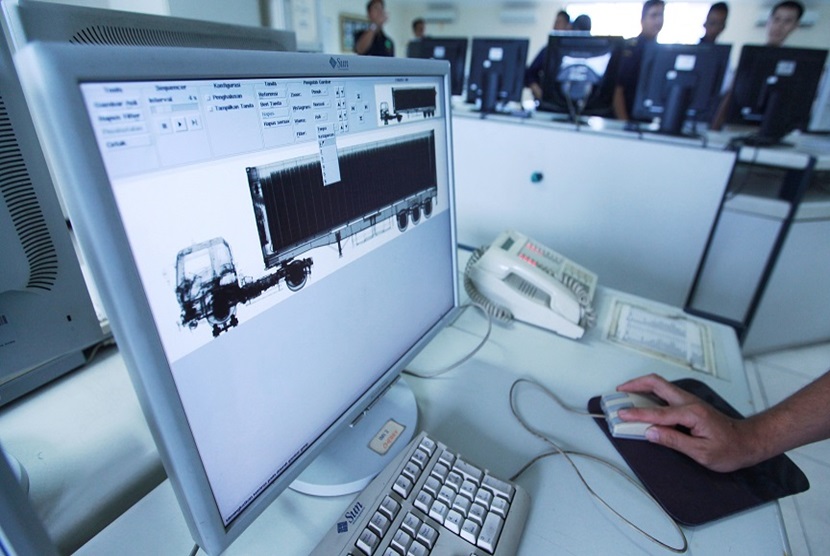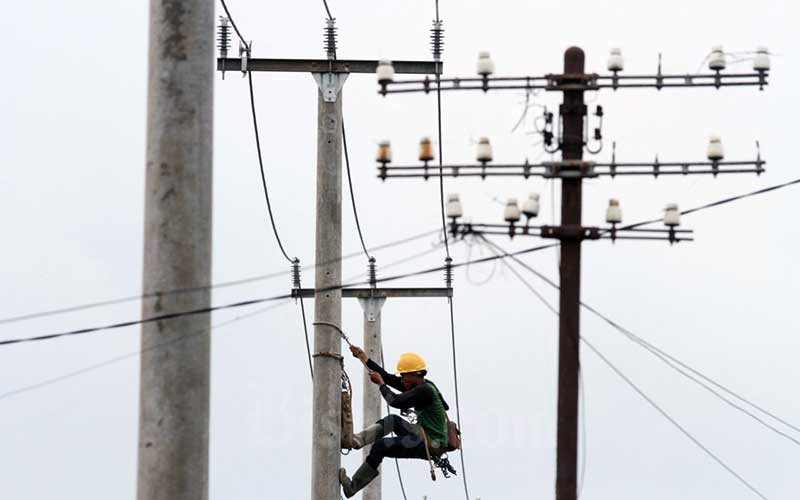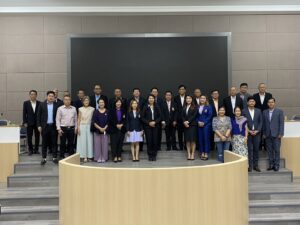[ad_1]
Columbia University awoke Wednesday to a calendar that lays bare the breadth of its troubles.
House Speaker Mike Johnson was expected on campus to visit with Jewish students. The university president, Nemak Shafik, was preparing to confer with the university senate, which could censure her as soon as Friday. And protesters and university officials were negotiating over the possible dismantling of an encampment that is dominating a swath of the campus lawn.
Overnight, the university and protesters narrowly avoided another confrontation that could have involved the police.
Dr. Shafik had warned Tuesday evening of a midnight deadline for the demonstrators to disperse, but around 3 a.m. Wednesday, the university said in a statement that student protesters had agreed to remove a significant number of the tents erected on the lawn, ensure non-students would leave, and bar discriminatory or harassing language among the protesters.
“In light of this constructive dialogue, the university will continue conversations for the next 48 hours,” the university said, less than one week after Dr. Shafik’s decision to ask the New York Police Department to clear the protest. That move led to the arrest of more than 100 students and reignited a divisive debate over free speech and the need to protect Jewish students who have felt threatened.
Hours before it announced the continuing talks, the university had said it was prepared to consider “alternative options” for clearing the tent city. The warning had alarmed student organizers, who told protesters to expect a police sweep overnight. Protest leaders instructed demonstrators to wear a red band if they were willing to be arrested and a yellow one if not.
A student group, which was previously suspended by the university, said in a statement that school administrators had threatened to call in the National Guard if protesters did not disperse. A spokeswoman for Gov. Kathy Hochul of New York pointed to her earlier comments that she had no plans to deploy the Guard.
After months of demonstrations on campuses protesting the war in Gaza, the unrest has reached a fever pitch in the final weeks of classes at some of the country’s most storied academic institutions. On Monday, police were called in to make dozens of arrests at Yale and New York University. Encampments have also sprung up at Tufts, Emerson and the University of California, Berkeley.
Administrators at campuses across the nation have been struggling to balance students’ free speech rights and the need to protect Jewish students. Some demonstrations have included hate speech, threats or support for Hamas, the armed group based in Gaza that led attacks on Israel on Oct. 7, sparking the war.
Mr. Johnson’s visit to campus will not include a meeting with Dr. Shafik. Instead, he is expected to focus, his office said, on the “troubling rise of virulent antisemitism on America’s college campuses.” His trip will turn the spotlight of Washington toward the university again — Columbia was the subject of a congressional hearing last Wednesday — just as Dr. Shafik is also scrambling to navigate the campus’s politics.
Some university senate leaders are hoping that her appearance at an emergency meeting will help to calm faculty members, many of whom remain furious over the decision to call in the police officers who made more than 100 arrests last Thursday.
“I don’t expect it to be a love fest,” Brendan O’Flaherty, a professor of urban economics who serves in the senate, predicted of the meeting.
Protest management is a particularly resonant matter for modern Columbia presidents, who have known well how Grayson L. Kirk’s tenure came to a turbulent close after endemic criticism about his handling of demonstrations in 1968, when he summoned the police to the private university.
The university senate could vote on a resolution to censure Dr. Shafik as soon as Friday — not long after the 48-hour negotiation period concludes.
Dr. O’Flaherty declined to gauge the temperature of the senate, noting that it is a complex organization of more than 100 faculty members, students, alumni and administrators from a wide range of academic disciplines.
But the draft resolution is harsh and accuses Dr. Shafik of violating fundamental rules by ignoring a 13-member senate executive committee that had unanimously rejected her request to summon armed New York City Police onto the campus.
By calling in the police anyway, the resolution said, Dr. Shafik had endangered both the welfare and the futures of the arrested students.
A censure vote is meant to show disapproval in a leader’s performance. It is a step short of a vote of “no confidence,” which is essentially a call for a leader’s removal.
Columbia has so far rebuffed calls for Dr. Shafik’s resignation, including one Monday from some of Mr. Johnson’s House Republicans.
Eryn Davis, Annie Karni, Santul Nerkar, Katherine Rosman, Karla Marie Sanford and Ed Shanahan contributed reporting.
[ad_2]
El Pais




